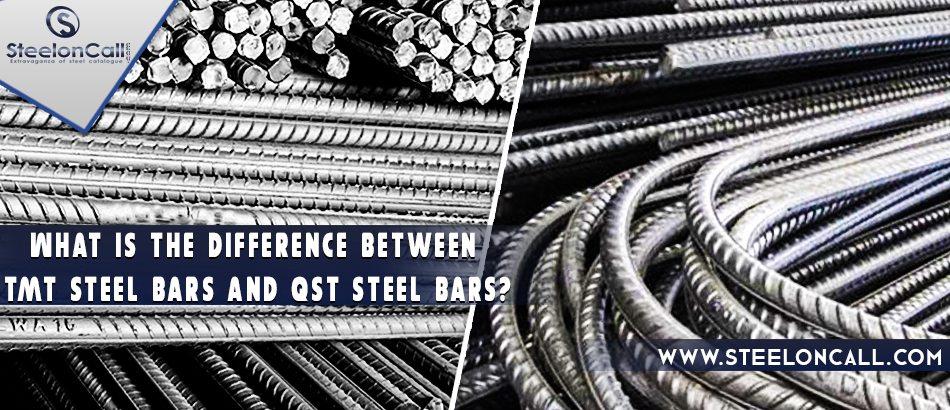What is the difference between TMT steel bars and QST steel bars

QST (Quenched and Self-Tempered) Steel rebars are fabricated by a quick cooling otherwise called quenching and slow reheating (self-tempering) of hot-rolled bars. The QST steel rebar examples from a similar item could show fundamentally the same as stress-strain. Thermo-Mechanically Treated (TMT) steel reinforcing bar is broadly utilized in the reinforced concrete construction industry. TMT bars accessible that can be of three different grades, and they are like Fe-415, Fe-500, and Fe-550.
Everyone thinks that there are a lot of differences between TMT and QST steel bars, but there is no contrast between TMT steel bars and QST steel bars. TMT steel bars are produced utilizing the thermomechanical treatment process, which involves three stages: quenching, self tempering, and annealing, i.e., QST + annealing. Quenched and Self-Tempered steel bars /TMT is a heat treatment which will be performed directly after hardening to build hardness and quality. Level of solidarity and hardness relies upon the medium of quenched and rate of cooling. During quenching, given quick cooling, martensitic structure forms and weakness increments with some remaining anxieties. To keep away from that fragility, another treatment called tempering is processed completely. This relieves the stresses and increases flexibility. In QST or TMT Steel bars, the steel is solidified and quenched. Quenching is done in a controlled way that solitary the outside of the material gets relieved, yet the core is still hot. The core heat will currently go about as the tempering temperature from inside and ease the residual stresses called self-tempering.
The TMT/QST fabricated steel rebars have rapid cooling called quenching and slow reheating (self-tempering) of hot-rolled bars. The mix of high quality and malleability is its specialty, which is credited to the different cross-sectional phase distribution with two stages. An ideal/adequate cross-sectional phase distribution is characterized by a concentric, uniform ‘tempered martensite’ (TM) ring and continuous around the ferrite-pearlite core. The TMT/QST rebars are inclined to bending-induced cracks. This turns out to be more terrible because bent rebars are used as stirrups with the least clear cover in concrete. Overbent rebars could have holes through which erosion could propagate quicker, even without chlorides. This corrosion could bring about the inevitable spalling of cement at the sides of bars and segments. A QST rebar with a total TMT on its periphery will twist without the arrangement of such splits.
The TMT steel is logically known as Quenched and Self Tempered (QST) steel. The cross-sectional area of good TMT rebar /QST steel reinforcing rebars ought to have a malleable core of ferrite-pearlite and a constant and consistently thick peripheral ring of hard tempered martensite (TM) microstructure. However, recent examinations on TMT/QST steels in the Indian market watched the nearness of discontinuous, eccentric, and non-uniform TMT-stages at the periphery, which can ascribe to the inappropriate quenching. It could bring about localized corrosion and varieties in mechanical properties. The scratching of steel to recognize the microstructural stages is a fragmented (needs relevant test conventions; prompts inconsistent outcomes) and non-obligatory arrangement given in the structure forms of the fabrication buildings. In this situation, a standardized test is essential to evaluate the nature of TMT/QST steel rebars. Correctly, the details on specimen extraction, preparation, testing, and analysis, which are significant to get reproducible and stable outcomes, and 2-level acknowledgment criteria for TMT/QST rebars are accommodated further consolidation in the standard determinations.

